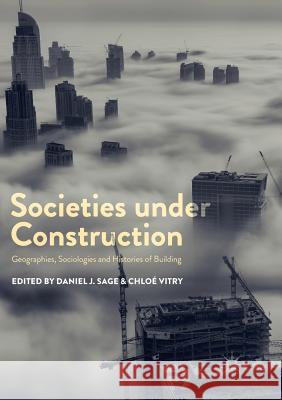Societies Under Construction: Geographies, Sociologies and Histories of Building » książka
topmenu
Societies Under Construction: Geographies, Sociologies and Histories of Building
ISBN-13: 9783030088989 / Angielski / Miękka / 2019 / 267 str.
Kategorie:
Kategorie BISAC:
Wydawca:
Palgrave MacMillan
Język:
Angielski
ISBN-13:
9783030088989
Rok wydania:
2019
Wydanie:
Softcover Repri
Ilość stron:
267
Waga:
0.34 kg
Wymiary:
21.01 x 14.81 x 1.52
Oprawa:
Miękka
Wolumenów:
01
Dodatkowe informacje:
Wydanie ilustrowane











